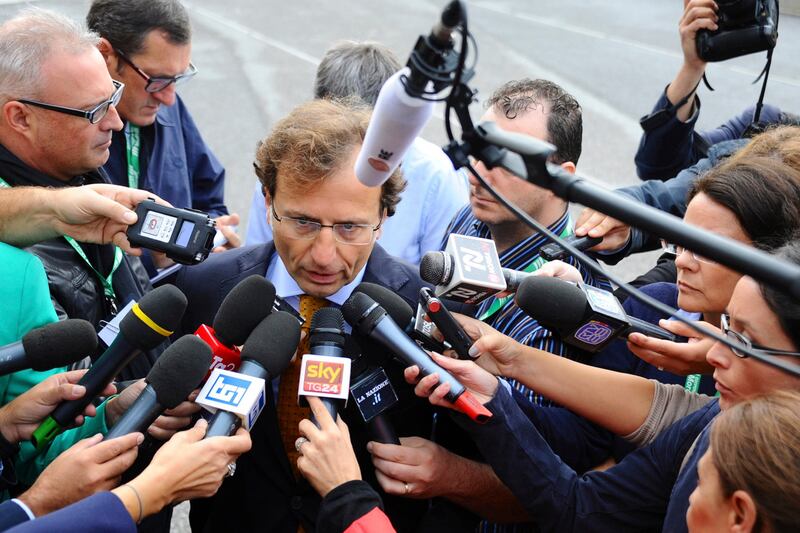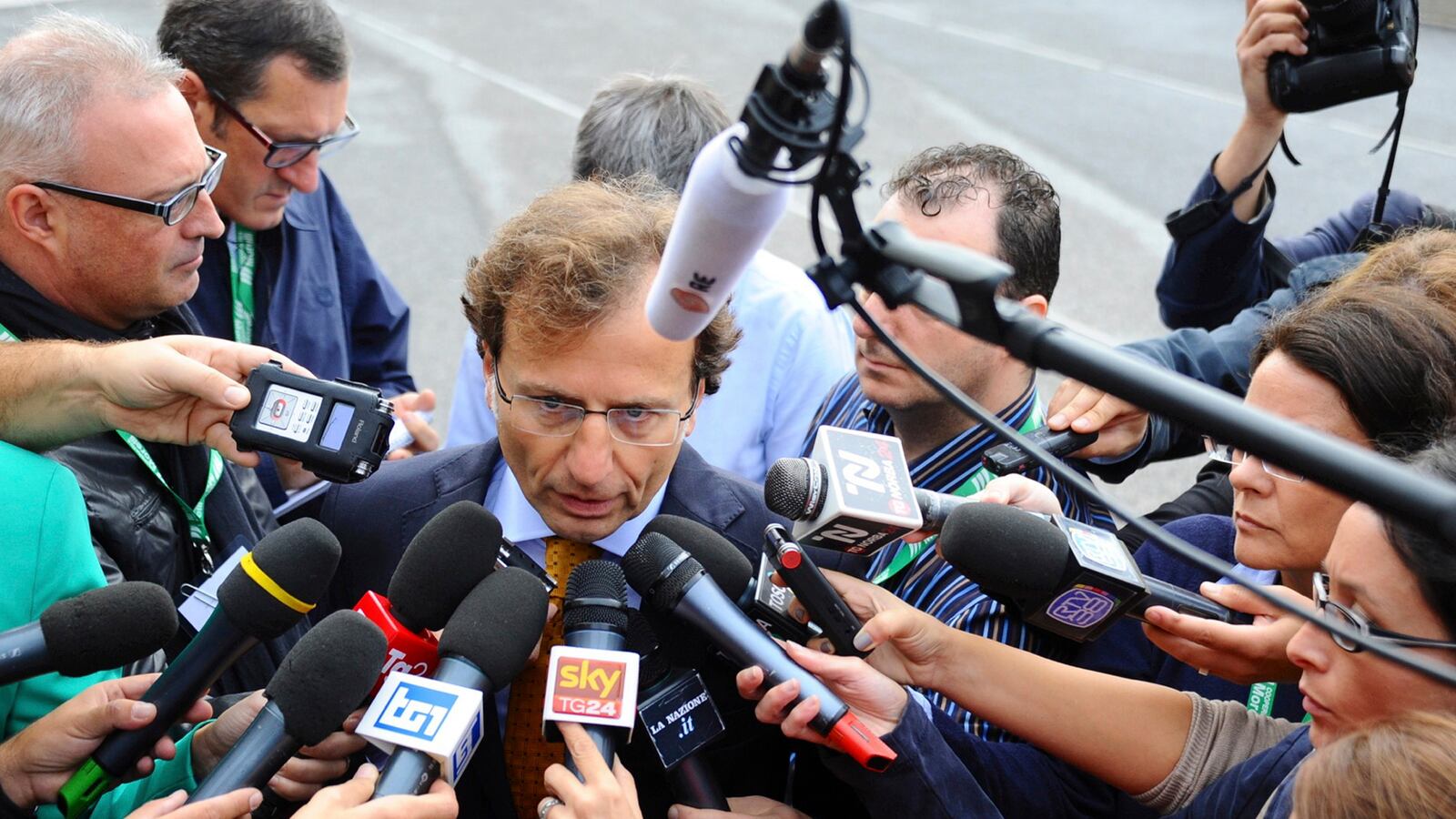There is something odd about seeing familiar faces in an unfamiliar setting. And so it was in Florence on Monday, when the case of the murder of Meredith Kercher made its way back to court. Amanda Knox and Raffaele Sollecito, who were first convicted and then acquitted of Kercher’s 2007 murder in Perugia, Italy, only to have the acquittal overturned in March of this year, were not in court. But the lawyers, journalists, and spectators who were frequent faces in the Perugia courtroom were all there, in what amounted to a strange reunion of all the usual suspects. The trials and appeals have been going on for nearly six years now, and saying those who follow the case closely are mere acquaintances would be an understatement. Regardless of which side of Knox’s guilt or innocence one stands on, a strong bond comes with following a case like this.

The court opened with the new judge, Alessandro Nencini, reading the particulars of the case down to the last detail, almost like a professor doing a final review before the big exam. Then the defense lawyers asked for new reviews of evidence. Sollecito’s lawyers asked for a review of the clean-up theory, a test of a presumed “sperm spot” on the pillow found under Kercher’s body. They also asked for a new look at the knife thought by the prosecution in the original trial to be the murder weapon, which had Knox’s DNA on the handle and what was purported to be Kercher’s in the groove of the blade, though the sample was too small to double test and as such was not positively proved. The defense also requested a new forensics review of Kercher’s tiny metal bra clasp, which had Sollecito’s DNA on it but was collected 47 days after it was identified on a police video of the crime scene. They also asked that a photo of Sollecito’s chewed-up fingernails be entered into evidence in the new appeal. Although the new prosecutor Alessandro Crini objected to much of what the defense asked for, he conceded that he would be open to a review of the knife.
The judge, accompanied by a side judge and six lay judges chosen from the public, spent several hours deliberating before coming back to deny almost all of the requests except for three. There will be a new review of the knife and Sollecito’s nail picture will be entered into evidence. The court also will hear from a convicted mobster Luciano Aviello, who told the original appellate court that his brother had killed Kercher and that the knife was buried in a garden in Perugia. In June 2011, he told the court in Perugia, “My brother came in and sat on the sofa. The right arm of his jacket was ripped and he could see blood on his arm. My brother then pulled out a pocket knife and a set of keys. He was very afraid. He didn’t want to create problems for me in Perugia. My brother was very emotional.” Aviello explained that his brother, who is conveniently on the lam, had taken a job to steal some art from a villa in Perugia, but the man who hired him jotted down the address incorrectly and they went instead to the house where Kercher and Knox were living. Having found Kercher home alone, they started to attack her sexually and then killed her. Aviello was a prison mate of Sollecito’s during the trial but maintains that his story is true.
The court also was given a letter from the family of Meredith Kercher, signed by Kercher’s sister Stephanie, explaining why the family had chosen not to attend the opening day of the new appeal. The defense objected to the letter being read in court, but copies were soon floating around the Florentine press room. “My mother has to attend dialysis 3 times a week, which is a huge strain on her health, and my father has previously suffered two strokes,” Stephanie Kercher wrote. “It is an extremely stressful time for us all and we desperately want to find the truth and justice for Meredith, who was so brutally and un-necessarily [sic] taken from us, and so we have decided to support each other in the UK and follow closely here.” She went on to say, “It has been the most difficult 6 years of our lives and we want to be able to seek closure and remember Meredith for the truly wonderful girl that she was rather than the horror that is associated with her.”
Francesco Maresca, who represents the Kerchers at the trial, said the family “bristled” when they heard the news that Knox said during a television interview that she intended to visit their daughter’s grave. “She is not welcome there,” he told The Daily Beast. “She should not go, now or ever.”
The court is scheduled to meet again on Friday to hear Aviello’s testimony and initiate the technical aspect of the procedure for the review of the knife, which will be carried out in Rome. Then five more dates have been set, culminating in what could be a verdict by the end of November. Knox says she will not come back to court, but Sollecito’s father said his son would attend some of the upcoming sessions.
Whether Knox and Sollecito are acquitted again or their conviction is upheld, the case won’t end there. The Italian high court ultimately will have to sign off on any trial outcome before the case is truly closed, at which time the Kerchers can begin their own closure. “It is a continuous struggle every single day, battling with our emotions, both happy memories and desperately sad,” Stephanie Kercher wrote in her letter to the appellate court. “The only way our pain and suffering can even begin to ease is by gaining a clearer understanding of the tragic events of November 1st 2007. Nothing will ever bring our beautiful Meredith back and we will always hold her in our hearts and memories, but we need to know what happened and she at least deserves the dignity of truth.”






